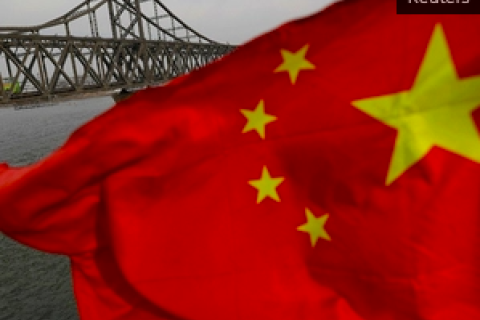Sharing harvests and tables: a community led farming movement in China
Measures put in place to control the spread of the COVID-19 virus could lead to a massive disruption to food supplies. Following a Call to Action for World Leaders, the FOLU community is working to protect food supplies, farmers, others involved in the production of food and vulnerable communities, as well as support a sustainable recovery to grow back better.
Communities need land rights to gain from investments
Communities being able to participate on an equal basis in land governance is key to food security and inclusive development. How can securing land rights pave the way for responsible investments and what can we learn from experiences with the palm oil industry? To answer these questions we turn to West Africa where two activists are fighting for their communities’ right to land. ‘If we want to move forward, we need to share the wealth that the land brings.’
African Risk Capacity and Government of Lesotho partner to strengthen management of climate disaster risk
Maseru, Lesotho, 23 October 2020 – The African Risk Capacity (ARC) Group and the Government of the Kingdom of Lesotho have signed a Memorandum of Understanding (MoU) to address persistent climate risks and scale up national disaster risk management and financing efforts.
Valuable expert input in LAND-at-scale country projects
LAND-at-scale is a Dutch government program that contributes to improving land governance. The program supports better food and nutrition security, economic development, peace and stability in developing countries. It also contributes to sustainable incomes and social justice. In October last year, the program took off with 13 promising project ideas in different countries.
LAND-at-scale: Frequently Asked Questions
The Dutch LAND-at-scale program was launched in March last year and since then, two rounds for land intervention ideas have been released. The program seeks ideas that contribute to improving land governance in developing countries, and that ultimately support better food and nutrition security, economic development, peace and stability in these countries. At this moment, projects for 16 countries are actively being formulated in close collaboration with embassies and other in country stakeholders.
Botswana embarks on land degradation neutrality
The Ministry of Environment, Natural Resources Conservation and Tourism (MENT) through the Department of Forestry and Range Resources (DFRR) has embarked on a project to restore degraded land and soil in order to achieve land degradation neutrality (LDN) in Botswana.
Angola to have Economic Inspection, Food Security Authority
Luanda, ANGOLA, September 24 - A preliminary draft Presidential Decree that created the National Authority for Economic Inspection and Food Security (ANIESA) was approved Wednesday by the Interministerial Commission for State Reform.,
It is a Public Institute that results from the unification of the sectorial services for inspection and supervision of economic activities in Angola, states a press release from the 2nd Ordinary Meeting of the Commission, chaired by President João Lourenço.
With rising population and declining arable land, China may be staring at a major food crisis
China estimates that by 2030, when its population is expected to reach 1.5 billion, it will need to produce an additional 100 million tons of food grains each year.
New Delhi: China faces a daunting task to feed 22 per cent of the world population with only 07 per cent of the global arable land. There are 334 million acres of arable land, of which roughly 37 million acres are non cultivable.
Lesotho aims to ‘go big’ on agriculture amid Agoa textiles uncertainty
Lesotho Prime Minister Dr Moeketsi Majoro reports that the country aims to overhaul its underperforming agricultural sector with the objective of improving both food security and attracting export-oriented investment into the production of high-value crops, such as fruit, vegetables and plant-based medicinal oils.
Urban residents devise new techniques to overcome food insecurity.
Residents in Namibia’s capital Windhoek are tapping into new techniques to grow food, overcoming food insecurity amid the biting COVID-19 pandemic.
In the heart of the bustling informal settlement of Goreangab, 42 -year-old Lucky Matunge is breaking new ground and growing vegetables in sacks that are filled with manure, sand and stones right at the back of her rental apartment.
Botswana Lives By AU's Malabo Declaration
The Minister of Agricultural Development and Food Security, Edwin Dikoloti last week told Parliament that Botswana is making strides in living the Malabo Declaration.
Dikoloti was responding to a question from Member of Parliament for Jwaneng-Mabutsane, Mephato Reatile who had asked the Minister when government would sign the Malabo Declaration.
The Declaration is a set of concrete agriculture goals to be attained by 2025 that was adopted at the African Union (AU) Summit in Malabo, Equatorial Guinea in June 2014 by Heads of State and Government.











